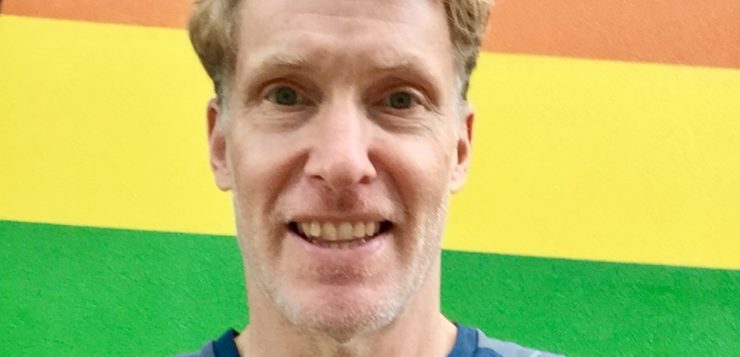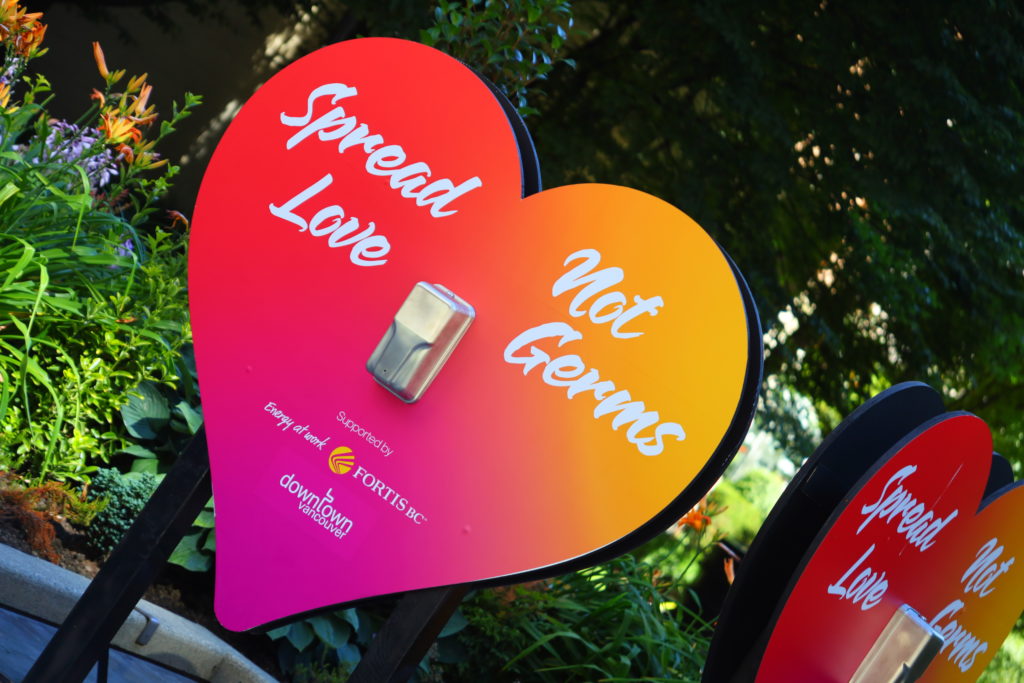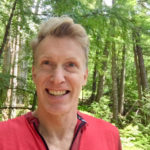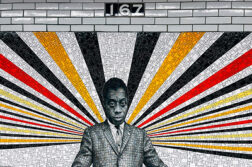A sanitation station at Vancouver Pride, 2020. Image by Roland Tanglao, 2020.
Throughout COVID, I’ve thrived. Through all its seriousness and weirdness, lockdowns allowed introverts like me to have a prolonged moment. Isolation? Less in-person contact? No problem. I felt no impact on account of the cancelation of Pride events last year and I am doing just fine again this year. To be sure, my very first parade all those years ago on Santa Monica Boulevard in West Hollywood instilled an essential sense of belonging and empowerment. Since then, however, attendance at Pride events has been spotty, something akin to a leap year or the Olympics. For me, it’s always been about the Pride inside.
Like everyone else, I had to scale back or forestall all aspects of public life from the outset of the pandemic. No travel, no daily café hopping to do my writing, no gym workouts. As June approached, did it also mean no Pride? Of course not.
The coronavirus required us to let go of “The Way It’s Always Been” and get creative. During prior Pride celebrations, there’s been pressure, real or perceived, for me to be a more active participant. I felt guilty declining invitations from gay friends to join them at the parade or go to a packed club. My straight friends, trying to be supportive, regularly asked, “Aren’t you going?” I’d try to move on to another topic, saying, “Parades aren’t my thing.” Indeed, they aren’t. I’m uncomfortable among crowds of people and I end up feeling badly about myself. Why does everyone else look like they’re having so much fun? So many rainbow balloons, banners, floats and groups marching! After fifteen minutes, I want to take control of coordinating the event to cut the gaps. Let’s move, people. When does it end? I often walk home yet again feeling like a party pooper and questioning whether my crankiness means something bigger. Am I not proud?
Sometimes I’m simply an insufferable introvert. In the LGBTQ community, we’ve always, at least, given lip service to diversity. Actualizing this remains a work in progress. I’m not campaigning for introverts’ rights. I just don’t want to feel unduly self-conscious for not embracing Pride the way I’m supposed to.
There have always been quieter events at Pride for introverts, but they’ve been on the fringe. A few years ago, I dragged a friend to see a screening of the documentary How to Survive a Plague in a small conference room at a library branch far from Vancouver’s gay epicenter. Only a handful of people attended and, by the end, my friend and I were the only two in the room. (I suspect he’d have scooted out too if I weren’t his ride home.) The movie greatly affected me as I recalled so much of the time when I’d lived through the AIDS crisis at its peak. This was an essential part of Pride that I felt too many people knew too little about or had moved past without a commitment to remembering the fight, the loss and how that epidemic advanced the overall gay rights movement, compelling so many of us to come out from the safety and comfort of the closet.
I’ve also gone to art exhibitions during Pride. These have typically been held in small galleries or at community centers. I correctly assumed that I’d have ample time for viewing and reflection without feeling rushed or distracted by masses of people elbowing closer to read the explanatory signage and snap a selfie.
Still, right or wrong, I’ve always felt that the cornerstones of Pride have been the parade, a gay harbor cruise, beer gardens, dances and an outdoor festival where people sit behind tables passing out condoms and offering a new phone plan. The conventional conception of Pride is as a celebration, one that is publicly out there. “We’re here! We’re queer! Get used to it!” Yes, I’ve shouted the chant. Yes, I still believe in its importance.
Last year, as events had to be accessed remotely, I finally felt like everybody else. I was on the bandwagon. Through Zoom, I attended several author events and gained more insights into the broadness and depth of our community, listening to more diverse voices than I’ve heard from during any prior Pride celebration. I’m an older gay man, still clinging to the term “middle aged,” and these speakers opened my mind to more perspectives and terminology that I was familiar with but didn’t fully understand. I also read more of these authors’ works as well as other resources they mentioned. I can honestly say I grew more as a gay man than I have in a long time.
This month, I continue to explore my pride in quiet ways, creating my own journey by rereading And the Band Played On, visiting the Vancouver AIDS Memorial, exploring how children’s literature is addressing gender identity, seeking out gay television shows, including “Special” on Netflix, watching drag queens do story times on videos I’d saved but never set aside time to view, researching trans issues, and the current state of trans activism, and writing what are hopefully thoughtful posts on my blog while also adding depth to LGBTQ characters in my works in progress.
I’m glorying in this more understated form of “pride”. For the first time in a long time, I feel in synch with the rest of the community. I’m fully on board. Under the present circumstances, I am, without reservation, proud.
Gregory Walters is an educator living in Vancouver, British Columbia. His writing has been published in The New York Times, The Globe and Mail, Writer’s Digest and Funny Times.








